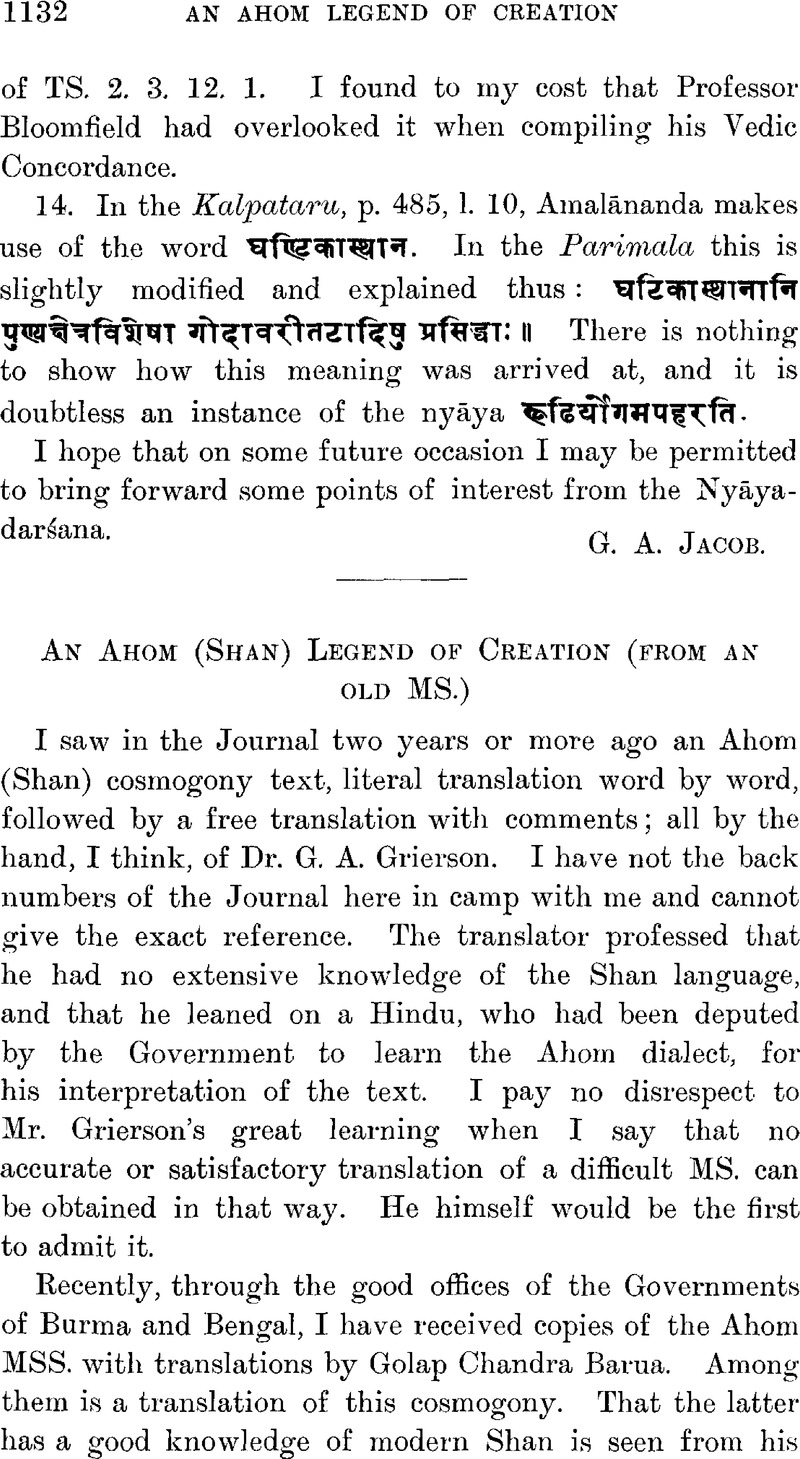Article contents
An Ahom (Shan) Legend of Creation (from an old MS.)
Published online by Cambridge University Press: 15 March 2011
Abstract

- Type
- Miscellaneous Communications
- Information
- Copyright
- Copyright © The Royal Asiatic Society 1911
References
page 1135 note 1 The translation before me says, “He had no mouth to speak. He had no head, no name, no arms, and no hands.” But his name has already been given, and a few lines below “he opened his eyes”, “he thought in himself” (lit. in his belly). That Indra was a huge paunch is an indecorous and unnecessary supposition.
page 1137 note 1 In both of the translations referred to these words were translated “ambrosia”, which is quite good, but I prefer “elixir”, as coming perhaps a little nearer the meaning here: nam, “water”; pu, “grandfather” or “old age”; lawk, “to shed as a skin”; a serpent, for instance, is supposed by the Shans to renew its life when it sheds its skin. Hence, the meaning is clear: “the life-renewing liquid.”
page 1140 note 1 I have written these names as descriptive phrases rather than as proper names with capital letters and literal translations as: Ai-Lang-Dön-Hseng-Hong - Saw-Hpa - Lai - Nang, “ Elder - Brother - House - Moon- Gem-Illustrious-Spoon-Celestial-Reigning,” which is too Oriental, and in English may mean much or nothing and is ugly to boot.
- 4
- Cited by


